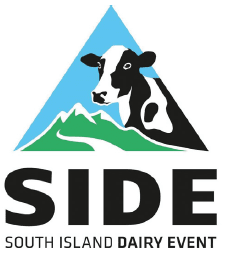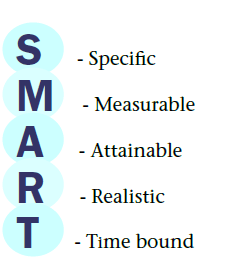Whether you’re moving into the industry, or on your way out, it pays to be well prepared. Anne Lee reports.
 Whether you are putting the first tentative step on the progression ladder or looking to ease out in terms of time or equity, being “best dressed” for the job will carry you a long way.
Whether you are putting the first tentative step on the progression ladder or looking to ease out in terms of time or equity, being “best dressed” for the job will carry you a long way.
“Getting in or getting out” was the title of a SIDE workshop run by Compass Agribusiness in Oamaru in June.
Regardless of where you are at – getting in or getting out – being investible either as a business or more personally will help set you apart from others and make you someone others want to align with.
Take stock
- Understand where you are now – in terms of skills and financially.
- Understand what the other party wants and build towards that if you’re not there already. Use a third party to help with that assessment – someone who has the skills to do so.
- Know your strengths and weaknesses – if you are stepping up to be a sharemilker or contract milker, are you a good manager of people, do you understand PAYE, rosters and the regulations? If you are a farm owner taking on a sharemilker or looking to reduce your input through equity partnership or succession, can you actually let go and allow someone else to do it?
- What’s your reputation or brand?
- Know your values – do they align with the other party? That’s crucially important if you’re moving into any kind of business relationship.
- What’s the quality of the asset? What are its strengths and weaknesses? Is there contingent liability – upgrades needed to effluent systems, irrigation, farm dairy?
- Where are the risks and opportunities for the business? Understand where it sits with environmental compliance, what regulations and rules will impact it. Has the production and analysis of profit been done with those rules in mind?
- What are your non-negotiables? What’s so important to you that you’d decline an opportunity with a person or business?
Set goals and plan
Goals can be long, medium and short range. They should be SMART
 Goals will give you direction and give you boundaries when making decisions – will this help me get closer to my goal or push me away from it?
Goals will give you direction and give you boundaries when making decisions – will this help me get closer to my goal or push me away from it?
Write them down – that makes you more accountable, reminds you what they are, clarifies your goals, helps you review progress.
A Harvard business study found people who write their goals down are more likely to achieve them, if they share their goals with someone else and let them know how they’re going along the way to achieving them they become even more likely to achieve them.
You can change your goals.
Once you have set the destination, plan – how will you get there? Understand what’s needed to achieve them.
Planning allows you to break down the goals into more manageable pieces.
It may not be linear to get there – sometimes you may have to move sideways or even back down and then back up again to make it to your goals.
What do you need to learn, what skills and competencies do you need?
If you are looking to take on a sharemilker, equity partner or carry out succession what skills or attributes are you looking for to get you to your goals.
Understand what the other person’s goals are – are they compatible with yours.
Being best dressed
Build a strong reputation.
Build a strong, credible CV.
Build your skills.
Build strong relationships – make sure the people you work for and alongside become your backers.
Take opportunities to learn and educate yourself.
Avail yourself of courses and programmes within the dairy sector such as Mark and Measure and the NZ Dairy Industry Awards.
Work closely with trusted, capable advisers.
Understand your accounts and finances.
If you’re getting in – limit your debts, have a personal budget and understand where your money is going. Have a savings history. All of that will give a banker more confidence in you.
If you’re getting out- have a farm business that’s investible not just a farm that’s saleable.
Know your business inside and out.
Is your system repeatable?
Be happy to share information – it gives investors comfort, helps them understand the operation and the full proposition.
Information should include – production history, operating costs, key inputs, staff structures, assets, impacts of changing rules, stress test it all.
You can get out to varying degrees by bringing in a manager, contract milker, sharemilker, equity partner, succession or selling up.
Assessing the opportunity, due diligence
Does the opportunity align with your goals?
What will your position be if you take the opportunity, full financial analysis, stress test it?
Treat every opportunity like a partnership and assess the people involved – are your values aligned, do your farming styles align, do they have someone who can act as a referee?
What will life look like day to day?
Use a third party to do the assessment or to check your assessment.
Keep the emotion out of it to start with and do the clinical assessments but at the end when that’s completed ask – what does your gut tell you?
Family situations have more emotion – bring in the skilled, trusted third parties.
If you’re looking to become less involved consider smaller steps first – could bringing in an officer manager free you up, can you handle stepping away and giving up a small amount of control?
For a sharemilker looking at an opportunity – understand the labour requirements and how production is achieved. Stress test and ask the what if scenarios – milk price drop, cost increases, climatic stress, infrastructure failure. Check for robustness. Understand the farm infrastructure, cup removers, irrigation, effluent, is the farm up to scratch for rules and coming rule changes?
Is the financial reward commensurate with the risk?
Check out the farm owners – their values, reputation.
Remember just because it’s a step up in terms of the normal historic pathway it may not be a step up in terms of profit or a move towards your goals.
Have a pros and cons list.
A good outcome is where each party is moving towards their goals.
KEY QUESTIONS:
- What sort of involvement do I want – high or low?
- Do I want to release capital?
- What risk do I want to take?





